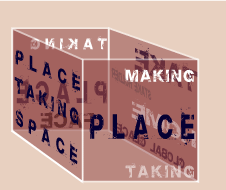Linh is a well-groomed student who lives in a dormitory in Lichtenberg. He gets financial support from his parents, who studied in East Germany. His father worked as a diplomat in Berlin and his mother is employed by the Friedrich Ebert Foundation in Hanoi. Linh started out as a economics major, but then decided to switch to sociology. He explains the change as follows:
When I came to Germany, I had just turned 19. I listened to my parent’s advice. Though I didn’t like economics, I hoped to get through it with hard work. But I was wrong. There are many factors that can influence you. And one of them is fun.
The children of the second generation are, as one of them puts it, “sometimes this way, sometimes that way.” “In terms of character,” the same one continues, “I am more German, but I’d rather be in Vietnam.” The daughter of an alterationist tells the Vietnamese sociologist Do Thi Hoang Lan:
At school, I am almost more German, but at home I speak Vietnamese and eat Vietnamese. Sometimes I speak Vietnamese mixed with German. It sounds a little strange, but my parents understand me.
All of the Vietnamese interviewed in B?rkle’s film have close ties to Germany—embarrassingly close considering the lack of awareness afforded them by Germany’s majority population. Ha was happy with her life in East Germany, but it wasn’t until the fall of the Wall that she experienced something truly stirring.
When we were still in Vietnam, the people said capitalism was grand…. In the first days, no one could have expected anything. But I definitely wanted to stay to experience the greatness of Germany myself. And it’s true: Germany is rich!!!
Her husband also speaks highly of Germany: “I have often cried for joy and asked myself how these people could be so talented and how they have managed to be so successful!” His explanation quickly follows: “It is a country that has truly developed according to the laws of nature”—an explanation predicated on the idea that Western civilizations represent the evolutionary zenith of human development. He and his wife profited from their new surroundings, working themselves up from a small kiosk to a large restaurant with ornate burl wood furniture. “We started small, and now we are so big.”
Linh Duc Nguyen has a great love for everything German—especially traits like directness, determination, and precision. His friends call him the “mini German”—not because his middle name, “Duc,” is Vietnamese for ‘German’; but because he is more German than the Germans. “I am happy about that.”
Joanna Breidenbach: Deutsch-Vietnamesische Freundschaft in Home Sweet City. Berlin 2007.

